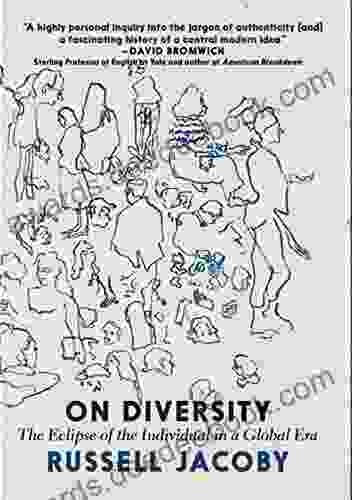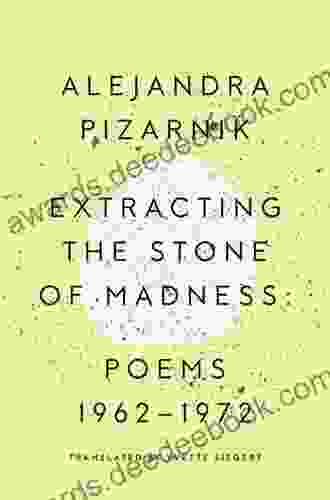Extracting the Stone of Madness: A Journey Through Sylvia Plath's Early Poems

Sylvia Plath's early poetry collection, Extracting the Stone of Madness, is a haunting and deeply personal exploration of themes of loss, trauma, and mental illness. Published posthumously in 1972, the poems in this collection offer a raw and unvarnished glimpse into Plath's inner world, revealing her struggles with depression, self-destruction, and the complexities of human relationships.
4.8 out of 5
| Language | : | English |
| File size | : | 875 KB |
| Text-to-Speech | : | Enabled |
| Screen Reader | : | Supported |
| Enhanced typesetting | : | Enabled |
| Print length | : | 384 pages |
Plath's use of vivid imagery and powerful symbolism creates a visceral and often disturbing poetic landscape. Through the exploration of madness as both a physical and metaphysical state, she invites readers to confront their own fears and vulnerabilities. The poems in Extracting the Stone of Madness are not for the faint of heart, but they offer a profound and ultimately cathartic experience for those willing to delve into their depths.
"Daddy"
One of the most iconic poems in Extracting the Stone of Madness is "Daddy," a harrowing and deeply personal exploration of Plath's relationship with her father, Otto Plath. The poem is a searing indictment of a man Plath describes as "a Nazi lover" and "vampire," whose absence and cruelty have left a lasting wound on her psyche.
The poem's imagery is both grotesque and haunting. Plath compares her father to a "vampire" who "drained [her] blood" and a "black shoe" that "in the dark / beat black eggs for Daddy to eat." These images convey a sense of both physical and emotional violence, suggesting the profound impact of Plath's father's abuse on her.
Yet, amidst the darkness and despair, there is also a glimmer of hope in "Daddy." The poem ends with Plath vowing to "eat [her] daddy's / black shoe / in one gulp" and "be reborn." This act of symbolic cannibalism suggests a desire to reclaim her own power and identity after years of being diminished by her father.
"Lady Lazarus"
Another powerful poem in Extracting the Stone of Madness is "Lady Lazarus," a mesmerizing and disturbing exploration of female suffering and resilience. The poem's speaker is a woman who has survived multiple suicide attempts and is now in a state of profound emotional turmoil.
The poem is filled with vivid imagery of violence and self-harm. The speaker describes herself as a "walking miracle" and a "phoenix" who has "risen from the ashes" of her own destruction. Yet, beneath this veneer of strength, there is a deep sense of vulnerability and pain.
"Lady Lazarus" is a powerful and ultimately ambiguous poem. It is a testament to Plath's own struggles with mental illness, but it also speaks to the broader experiences of women who have faced trauma and loss. The poem's ending is both hopeful and haunting, as the speaker declares: "I will show you / how to set a woman free." This line suggests that even in the face of adversity, it is possible to find liberation and healing.
"Tulips"
In contrast to the darkness and despair of many of the poems in Extracting the Stone of Madness, "Tulips" offers a moment of unexpected beauty and hope. The poem describes the speaker's experience of receiving a bouquet of red tulips while she is lying in a hospital bed.
The tulips are a vivid symbol of life and renewal, and their presence in the speaker's room brings a sense of color and vibrancy into the otherwise sterile environment. The poem's imagery is simple and evocative, capturing the beauty of the tulips and their impact on the speaker's emotional state.
"Tulips" is a reminder that even in the midst of darkness, there is always the potential for beauty and joy. The poem's hopeful message is a testament to Plath's own resilience and her ability to find moments of grace in even the most difficult circumstances.
Sylvia Plath's Extracting the Stone of Madness is a powerful and deeply personal collection of poems that explores themes of loss, trauma, and mental illness. Through the use of vivid imagery and powerful symbolism, Plath creates a visceral and often disturbing poetic landscape that invites readers to confront their own fears and vulnerabilities.
The poems in Extracting the Stone of Madness are not for the faint of heart, but they offer a profound and ultimately cathartic experience for those willing to delve into their depths. Plath's honesty and vulnerability in these poems is both harrowing and inspiring, and her work continues to resonate with readers today.
4.8 out of 5
| Language | : | English |
| File size | : | 875 KB |
| Text-to-Speech | : | Enabled |
| Screen Reader | : | Supported |
| Enhanced typesetting | : | Enabled |
| Print length | : | 384 pages |
Do you want to contribute by writing guest posts on this blog?
Please contact us and send us a resume of previous articles that you have written.
 Book
Book Novel
Novel Text
Text Story
Story Genre
Genre Reader
Reader Library
Library E-book
E-book Magazine
Magazine Paragraph
Paragraph Sentence
Sentence Shelf
Shelf Glossary
Glossary Bibliography
Bibliography Preface
Preface Synopsis
Synopsis Annotation
Annotation Manuscript
Manuscript Scroll
Scroll Bestseller
Bestseller Classics
Classics Library card
Library card Memoir
Memoir Reference
Reference Encyclopedia
Encyclopedia Character
Character Resolution
Resolution Librarian
Librarian Catalog
Catalog Research
Research Scholarly
Scholarly Lending
Lending Reserve
Reserve Academic
Academic Rare Books
Rare Books Special Collections
Special Collections Study Group
Study Group Thesis
Thesis Reading List
Reading List Theory
Theory Charlie Wetzel
Charlie Wetzel Amelia Bullmore
Amelia Bullmore Claire Legrand
Claire Legrand Randy E Barnett
Randy E Barnett Jeffrey Mcdaniel
Jeffrey Mcdaniel Shirley Raye Redmond
Shirley Raye Redmond Ron Loftus
Ron Loftus George Jellinek
George Jellinek Stephen M Norris
Stephen M Norris Richard Traubner
Richard Traubner Vince Dooley
Vince Dooley Michael J Sandel
Michael J Sandel Steve Sheinkin
Steve Sheinkin Denise Laura Voshell
Denise Laura Voshell Robin Sharma
Robin Sharma Jeff Allen
Jeff Allen Virginia E Gray
Virginia E Gray Joseph E Stiglitz
Joseph E Stiglitz Jules Price
Jules Price Apple Jordan
Apple Jordan
Light bulbAdvertise smarter! Our strategic ad space ensures maximum exposure. Reserve your spot today!
 Arthur C. ClarkeFollow ·19.4k
Arthur C. ClarkeFollow ·19.4k Jessie CoxFollow ·18.7k
Jessie CoxFollow ·18.7k E.M. ForsterFollow ·15.3k
E.M. ForsterFollow ·15.3k Lord ByronFollow ·14.4k
Lord ByronFollow ·14.4k Raymond ParkerFollow ·4k
Raymond ParkerFollow ·4k Keith CoxFollow ·12k
Keith CoxFollow ·12k Theo CoxFollow ·2.3k
Theo CoxFollow ·2.3k Beau CarterFollow ·11.2k
Beau CarterFollow ·11.2k

 Roger Turner
Roger TurnerThe Waning of the Individual in the Global Era: A...
In the rapidly globalizing world of today,...

 Reginald Cox
Reginald CoxFirst of Verbs: An Early Language
The First of Verbs (FOV) is an early...

 Cody Blair
Cody BlairThe Biography Of The Myth: Routledge Historical...
Who is the Myth?...

 Dean Cox
Dean CoxArtificial Neural Networks: Unraveling the Amazing...
Artificial Neural Networks (ANNs),...

 Kyle Powell
Kyle PowellHow To Amend Our Constitution To Rescue Democracy For All...
Our democracy is in...
4.8 out of 5
| Language | : | English |
| File size | : | 875 KB |
| Text-to-Speech | : | Enabled |
| Screen Reader | : | Supported |
| Enhanced typesetting | : | Enabled |
| Print length | : | 384 pages |














